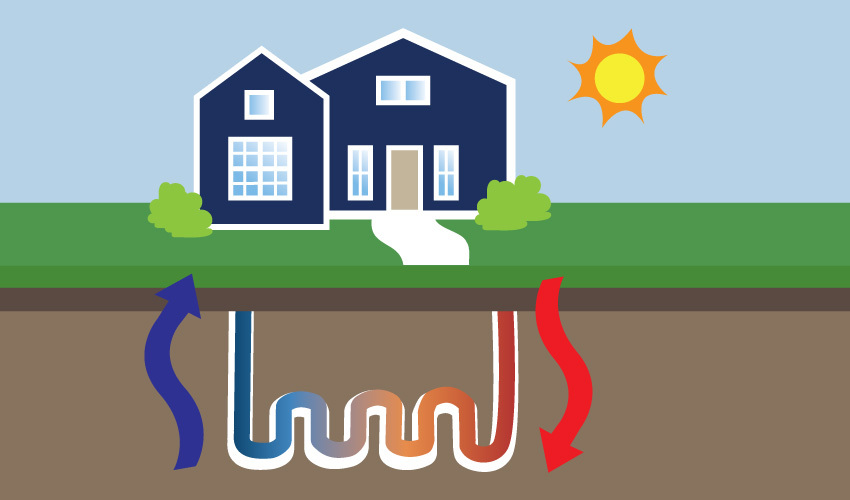
Sure, you’ve heard of geothermal heating, but what about geothermal cooling? Believe it or not, modern geothermal HVAC systems are capable of both heating and cooling your home.
If you're looking for an environmentally friendly, cost-effective way to heat and cool your home, then a geothermal system could be right for you.
Let's take a more in-depth look at how geothermal cooling systems work to determine if it's the right solution for you.
How Geothermal HVAC Systems Work
If you have a geothermal heating system, it’s likely that your system can be reversed to cool your home, too. Most modern geothermal HVAC systems come equipped with a reversing valve, so they can heat your home in the winter and cool your home in the summer.
Geothermal HVAC systems can operate in any climate because the constant temperature of the ground under the earth's surface is between 45 to 75 degrees Fahrenheit depending on the location, and a geothermal system uses the natural ambient temperature of the ground to heat and cool your home.
Geothermal HVAC systems consist of three main parts:
- A loop of pipes buried underground to transfer energy to and from the system.
- A heat pump usually located inside a home.
- A heating and cooling distribution system located inside a home.
In the winter, the ground loop collects the heat from the earth and pumps it up through the heat pump to the heating and cooling distribution system. In the summer, the heat pump collects heat from your home and pumps it into the cool earth below, the temperature of the earth cools the air and then it’s recirculated into the home, providing a fresh, cool air temperature.
Benefits of a Geothermal HVAC system
When a geothermal HVAC system is working efficiently, it doesn’t require extensive maintenance. It works in harmony with the temperatures in the ground to provide heating in the winter and cool air in the summer, keeping the temperature of your home comfortable.
Geothermal HVAC systems, despite costing a lot to initially set up, boast lower operating costs over time than traditional heating systems. They need few repairs and use very little electricity.
Geothermal HVAC systems are also built to last. The average lifespan of a geothermal system is 24 years, compared to the lifespan of 12-15 years for traditional HVAC systems. If properly maintained, geothermal HVAC systems have even been known to last up to 50 years! With a system lasting this amount of time, you’ll certainly see a return on investment should you choose to purchase a geothermal HVAC system.
Breathe Easy with Geothermal HVAC Support from Aire Serv
At Aire Serv®, we’re here to help you choose and maintain the perfect HVAC systems for your home or business. Whether you’re interested in a geothermal or traditional system, trust your local Aire Serv to advise you every step of the way. Don’t wait, call today or request an appointment online to get started.

